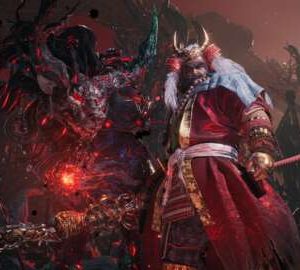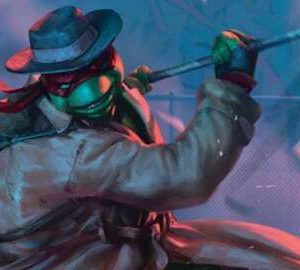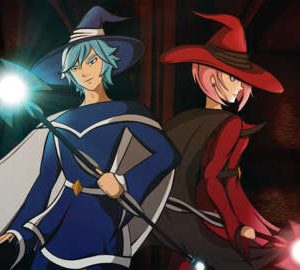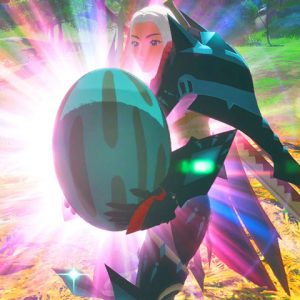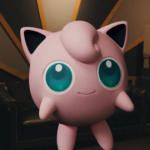The Pokémon franchise doesn’t scare me that often. Sure, when I see Pikachu take a hard hit in a battle, I’m scared for his health. When Giratina shows up to fight my beaten-down team at the end of Pokémon Legends: Arceus, that’s also terrifying because I’m running low on Pokémon to fight back. But in terms of actual scares in a traditional horror sense, there haven’t been a lot of those over the years. However, as we enter spooky season, I’m reminded of a 1998 anime episode that aired in the US 25 years ago, where Gastly, the sole ghost-type Pokémon of the first generation, finally made its TV debut. The Pokémon anime can sometimes feel a bit sanitized and sanded-down, but back in the ‘90s, Ash’s adventures had higher stakes, and that episode in particular still gives me goosebumps to this day.
Gastly walked so future ghost-type Pokémon could run
“The Ghost of Maiden’s Peak” (streaming on Netflix) is a good example of the Pokémon anime expanding on ideas that are just hinted at in the games themselves. At the time, the Gastly family was the only ghost-type Pokémon, so centering them in a scary episode was a no-brainer. Sure, the Pokémon games deal with ghosts and death in the universe in Lavender Town’s Pokémon Tower, which serves as a burial ground for those critters, but ghosts in the Pokémon universe were still a pretty abstract concept in Red and Blue. Ash and Pikachu pass through Lavender Town on their journey, but the anime doubles down on ghost-types as a frightening, unknowable force within the universe, and in “The Ghost of Maiden’s Peak”, it’s used to excellent effect.
The episode follows Ash and his friends as they visit Maiden’s Peak, a location that doesn’t appear in the games but is home to a summer festival and shrine where the locals tell the legend of a young woman who, thousands of years ago, was deeply in love with a man who was sent off to war. She swore to wait at the end of a cliff, watching the sea’s tides, waiting for her lover’s ship to return. But he never did, and her body turned to stone as she waited. She was the “when will my husband return from the war” joke taken to its most extreme conclusion. We stan a loyal queen, but girl, you could have waited indoors and not succumbed to the elements.

Welcome to Exp. Share, Kotaku’s Pokémon column in which we dive deep to explore notable characters, urban legends, communities, and just plain weird quirks from throughout the Pokémon franchise.
When our heroes arrive at Maiden’s Peak, Brock, Ash’s ex-gym leader friend, sees the spirit of the maiden and is immediately infatuated. James, Team Rocket’s lovable dimwit, also falls victim to her spell, and the two are transfixed by her, eventually falling victim to her hypnotic abilities come nighttime. Ash’s Pikachu is the only one who sees the truth of the matter: This is a Pokémon masquerading as a spirit. The two affected imbeciles disappear during the night and are drawn into the spirit’s web. When Ash and the rest of Team Rocket find them, they’ve basically lost their minds, succumbing to some kind of love spell and babbling nonsense about their devotion to the ghost. A quick Thundershock from Pikachu later, the two become somewhat more coherent but Brock maintains his undying loyalty to a ghost girl he just met.
With the help of a local old woman, Ash, Pikachu, Misty, and the rest of Team Rocket attempt to banish the ghost by using Ofuda, which the old woman calls an “anti-ghost” talisman (referred to as “stickers” in the English dub). In the real world, these are used in Buddhism and Shinto to protect a home from misfortune, but in the Pokémon world, they keep out haunting spirits. Or, at least, that’s the idea. When the ghost of the maiden returns the following night, she’s able to easily enter the shrine and telepathically drag Brock and James out into the open air She nearly succeeds in abducting them again, until Jesse whips out an actual rocket launcher and disrupts her concentration.
Then the maiden conjures several terrifying ghosts, and Ash notes that he doesn’t recognize them as a Pokémon. He pulls out his Pokédex, and it confirms this small army of ghosts aren’t Pocket Monsters to be caught in a Pokéball—but the same can’t be said for the maiden’s ghost itself, which appears to be something entirely different. As the ghouls descend upon the group, Ash points his Pokédex in the direction of the maiden’s ghost, and the Pokédex says “still searching” for what feels like an agonizingly long time until it determines the maiden is actually a Gastly in disguise.
Once Gastly reveals its true form, the episode makes light of the situation (this is a kid’s show, after all) It transforms into a mouse trap to chase after Pikachu when the mouse Pokémon tries to fight it. It conjures a ball to distract Meowth as he tries to take advantage of an opening in the battle. It even shapeshifts into a fire extinguisher to target the life-giving flame on Charmander’s tail. While it would have been easy for Pokémon to keep portraying Gastly as a terrifying creature that Ash and friends can’t defeat, the show instead makes it a bit of a prankster, something more palatable for a younger audience.
The entire ordeal comes to a close as the sun rises, and Gastly reveals that it does have one weakness: sunlight. The ghost disappears and vows it will return next year, but for now, James and Brock are free from its curse. However, while innocent idiot boys will continue to fall victim to its hypnosis, the episode reveals the ‘Mon has noble intentions.
We see a scene of Gastly speaking with the actual spirit of the maiden. It reveals it has a passion for keeping old legends alive, and uses the summer festival to remind tourists of her story. At this point, Gastly’s antics have become just as embedded in the festival as the story of the maiden herself. It must travel to another land in search of new legends to spread, but promises to return to Maiden’s Peak to tell her story once again.
The entire ordeal is still striking today, both as a Pokémon ghost story and a riff on the source material. The Gastly “reveal” isn’t really a twist, as the episode shows early on that the Pokémon is behind the whole scheme. Even though you know the ghost is a Gastly, the anticipation of watching Ash stumble into that knowledge in what seemed like a life-or-death circumstance is intense—especially because you know the Pokédex’s rules of having to “see” a Pokémon before it can identify it.
In the first-generation games, the only way you can “see” a ghost-type Pokémon is by using the Silph Scope. This proprietary tech was developed with the sole intention of gazing past illusions created by ghosts and identifying the source. Ash doesn’t have one of these, but the Pokédex, not limited by the human’s naked eye, is able to scan the environment and name the group’s ghostly foe. It’s such a rewarding moment of clarity in a tense, frightening scene. Suddenly, something that seemed incomprehensible is dragged into plain sight.
Even nine generations in, Ghost Pokémon are still pretty enigmatic. Their lore is often some of the darkest you’ll find in the Pokédex, and that’s only become more apparent as more of them have joined Gastly and its evolutionary line in subsequent games. Yamask is apparently the soul of dead humans wandering the land of the living, legend says Poltchageist originated from a bitter man dying over a broken caddy. But even when Gastly was the only ghost we had, it was providing scares, spooks, and shocks from the beginning. It was a trailblazer for how ghost-type Pokémon would exist in the series for years to come, and they’ve only gotten spookier as time has gone on.





